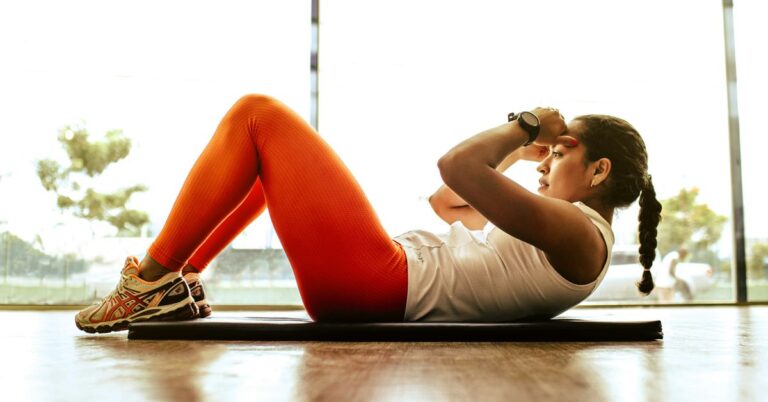The Rise of Esports: A New Frontier
Esports has traveled a remarkable journey from the dimly lit, smoke-filled rooms of arcades to sprawling stadiums filled with enthusiastic fans. Remember when video games were considered a mere pastime? Nowadays, they have morphed into a billion-dollar industry, captivating millions across the globe. But, as with any rising trend, the question of its impact—especially on physical health—has become an increasingly important topic for discussion.
Understanding Esports
For those who might still be wondering, esports refers to competitive video gaming where players or teams compete against each other in various games. Titles like League of Legends, Dota 2, and Fortnite have become household names, not just for gamers but for millions of fans who tune in to watch matches online or in arenas. It is a unique blend of strategy, skill, and teamwork—akin to traditional sports. It struck me that, while many people debate whether esports should be classified as a sport, the same intense dedication and training are evident among professional gamers.
The Numbers Speak
Take a moment to consider these staggering statistics: according to a report by Newzoo, the global esports audience is expected to surpass 600 million by 2025. That’s more than the entire population of the United States! And with this growth comes a burgeoning ecosystem of sponsorships, streaming platforms, and merchandise sales, which all contribute to the industry’s substantial economic footprint. Yet, behind the numbers lie deeper implications for physical health.
The Dual Nature of Video Gaming
One could argue that gaming, particularly in the context of esports, is a double-edged sword. On one side, it’s an exhilarating platform for competition and community, while on the other, it presents challenges that can affect physical well-being. I recall chatting with a friend who became obsessed with improving his rank in a popular battle royale game. He spent hours glued to his screen, and while he raved about his victories, I couldn’t help but notice the telltale signs of neglecting his physical health.
Potential Health Risks
While the excitement of esports is palpable, the sedentary lifestyle accompanying it can lead to various health issues:
- Obesity: Spending hours seated can contribute to weight gain. A study by the University of California found that gamers who play for more than three hours a day are at higher risk for obesity.
- Eye Strain: The infamous “gamer’s gaze” can lead to digital eye strain, or Computer Vision Syndrome, characterized by discomfort and vision problems.
- Repetitive Strain Injuries: The intense use of keyboards and controllers can lead to conditions like carpal tunnel syndrome.
- Poor Posture: Extended gaming sessions often lead to slouched backs and neck pain—a scenario I’ve found myself in more than once.
The Psychology Behind Gaming
As I explored the psychology behind gaming, I stumbled upon intriguing insights. Gamers often experience a sense of flow—a state of complete immersion and focus—which can lead to a reduction in perceived fatigue. However, this can also create a dissonance, where players lose track of time and neglect their physical needs. The distinction between healthy gaming and harmful habits can be razor-thin, and understanding this balance is crucial.
The Positive Side of Esports
However, it would be remiss not to mention the other side of the coin. Esports has the potential not only to entertain but also to promote physical health and well-being. Yes, you read that right! It might sound contradictory, but hear me out.
Promoting Discipline and Teamwork
Much like traditional sports, esports fosters discipline, strategic thinking, and teamwork. Players often have to maintain a rigorous training schedule, which can include physical fitness components. I met a coach of a professional esports team who emphasized the importance of physical conditioning in their training regimen. He mentioned, “We integrate workouts into our daily routine; it’s about keeping the mind sharp and the body ready.”
Esports and Physical Activity
Interestingly, some studies suggest that gamers who participate in esports may engage in more physical activity than their non-gaming counterparts. For instance, a survey conducted by the International Journal of Environmental Research and Public Health revealed that competitive gamers often engage in fitness activities to improve their gaming performance. It’s a fascinating paradigm shift—using gaming as a catalyst for fitness rather than a deterrent.
Incorporating Physical Health into Gaming
So, how can we bridge the gap between the exhilarating world of esports and maintaining physical health? The good news is that several initiatives are paving the way. Esports organizations are beginning to recognize the importance of health and wellness programs.
Programs and Initiatives
Several esports teams have adopted training regimens that include physical workouts, nutrition guidance, and mental wellness strategies. Here are a few noteworthy examples:
- Team Liquid: They have implemented a comprehensive wellness program that covers physical fitness, nutrition, and mental health, with dedicated staff to support players.
- Cloud9: This team has partnered with fitness experts to create customized workout plans for players, ensuring they stay active while gaming.
- Fnatic: Known for its commitment to player well-being, Fnatic has introduced a “health week” where players focus exclusively on fitness and mental health activities.
Mindfulness and Gaming
Moreover, the concept of mindfulness is gaining traction within the gaming community. Incorporating practices like meditation and breathing exercises can help gamers manage stress and improve focus. I’ve tried a few guided sessions myself, and while I can’t say I’ve reached nirvana, I certainly felt more centered (and maybe less likely to throw my controller during a frustrating match!).
Advice for Gamers
As a self-proclaimed gaming enthusiast (let’s just say I have a soft spot for RPGs), I’ve learned a thing or two about balancing gaming and health. Here are some personal tips that have worked for me:
- Set Time Limits: It’s easy to lose track of time. Set a timer to remind yourself when to take breaks.
- Stay Hydrated: Keep a water bottle nearby. Hydration is key; I often forget until my throat feels like sandpaper!
- Incorporate Movement: Try doing stretches or light exercises during breaks. I often find that a quick jog in place can recharge my energy.
- Practice Good Posture: Invest in a good gaming chair and be mindful of your posture. Trust me, your back will thank you later!
Future Trends in Esports and Health
As esports continues to grow, it’s essential to consider how the industry can evolve to prioritize health. While we’re starting to see positive changes, the future holds even more potential. With advancements in technology, we may see the integration of fitness tracking into gaming platforms, encouraging players to stay active while they play.
Emerging Technologies
Imagine a world where your gaming console could monitor your physical activity and suggest workouts based on your gaming performance. Sounds like science fiction, right? But with the rise of wearable tech and fitness apps, this could soon be a reality. Companies are already exploring ways to gamify workouts—think of it as ‘leveling up’ your fitness while you level up in your favorite game. It’s a thrilling prospect!
Community Initiatives
Furthermore, the gaming community can play a vital role in promoting health. Hosting charity tournaments focused on fitness, or partnering with health organizations can create a positive impact. Who wouldn’t want to compete in a gaming marathon that also promotes healthy habits? It’s a win-win scenario that could help redefine the narrative surrounding gaming.
A Personal Reflection
As I sit here reflecting on the evolution of esports, it’s evident that we are at a crossroads. The rise of gaming has opened up new avenues for connection, competition, and even fitness. I fondly remember my childhood days spent playing games like Super Mario and Street Fighter, and while I may not have been a professional gamer, those experiences shaped my love for gaming.
Now, as I see the esports phenomenon unfold, I can’t help but feel a sense of excitement. There’s a chance for gamers to redefine what it means to lead a healthy lifestyle while pursuing their passion. So, whether you’re a casual player or an aspiring pro, remember: your health is just as important as your skills.
Conclusion: Striking a Balance
In conclusion, the rise of esports has brought about both challenges and opportunities regarding physical health. While the sedentary nature of gaming can pose risks, the potential for positive change is equally significant. As gamers, we have the power to redefine our engagement with gaming, turning it into a catalyst for health and wellness.
Let’s embrace the future of esports with an open mind and a commitment to our well-being. After all, whether we’re in the midst of a heated battle against opponents or embarking on epic quests, it’s essential to remember that the journey is just as important as the destination.









